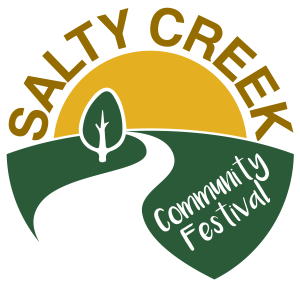Managing social media responsibly
Cara has asked Meagan, the communications manager at a local refugee support organisation, to help her create a poster about the role of social media in not-for-profits. Learn how Meagan uses critical thinking before sharing information on social media…


As someone who works in the social services sector, Cara knows that social media is a key way for not-for-profit organisations to build awareness, raise funds, and engage the community in a cause. Cara has invited Meagan, who works for a local organisation as a part-time social media manager, to prepare a presentation on her work for the Social Sector Industry Booth at the Salty Creek Community Festival. For Meagan, managing the social media accounts for the organisation where she works and sharing relevant content with the community is a fun and rewarding job—but it also comes with the responsibility of representing her organisation well and ensuring everything she shares comes from reputable sources.
Meagan has prepared a short talk for visitors to the festival who are interested in social media and what a day in the life of a social media manager looks like. She’s also shared her strategy for evaluating information online in a digital poster that will be available at the festival and on the festival website.
Meagan’s practising what she plans to tell the festival visitors about how she uses social media at her job with the Rural Refugee Outreach Centre. Listen to her run-through or read the text below.

Meagan has also prepared an interactive poster about how she engages with information on social media and the SIFT method, which she uses to decide what is worthy of sharing.
Check out the poster that Meagan has created about evaluating online information. Select the ‘+’ icon to expand each section and read more detail.
This resource has been adapted from: Check, Please! Authored by: Michael Caulfield. License: CC BY: Attribution 4.0
Cara hopes that visitors to the social sector booth will be inspired by Meagan’s work, and also walk away with a better understanding of responsible social media use in their own lives.
DID YOU KNOW?
According to research conducted at the Massachusetts Institute of Technology in 2018, fake news travels faster on social media than real, factual information.
Researchers looked at a data set of approximately 126,000 stories spread on Twitter between 2006 and 2017 by about 3 million people. They found that falsehoods travelled faster than the truth and reached far more people, in all categories of information, though false political news saw the worst effects. The researchers believe that the emotional reactions evoked by the fake stories might have led people to share them more often than true news (Vosoughi et al. 2018).
Source:
Vosoughi S, Roy D, Aral S (2018) ‘The spread of true and false news online’, Science, 359(6380):1146-1151, doi:10.1126/science.aap9559.
Social media is important in the not-for-profit world as a way of connecting with the community, although it’s vital to make sure that anything shared is reputable information from reliable sources. This is true for any company or public-facing group, too—anything posted online can have a big impact on the reputation of the organisation. Unreliable information is something you are bound to come across online in your studies and everyday life. Learning to evaluate online information is an important part of developing your digital literacy skills, which can help you share information responsibly and conscientiously.

- SIFT is an important tool in many industries, including health. Check out James’s advice for using SIFT when investigating the reliability of online health information. (15 to 20 minutes)
- Evaluating information is a part of many different job roles. As part of the Economics and Marketing Industry Booth, Bo has invited Kayla, a market research intern to talk about her work evaluating market information for a winery in Salty Shire. (15 minutes)
Learn more on Learning Lab
- Delve deeper into SIFT, the method Meagan uses to determine whether a news story is worthy of reposting. Check out these resources on Engaging critically with social media. (12 minutes)
- Have a look at our page on how to Evaluate information sources using CRAAP, another useful method for judging whether information is reliable and appropriate for inclusion in academic work. (10 minutes)

